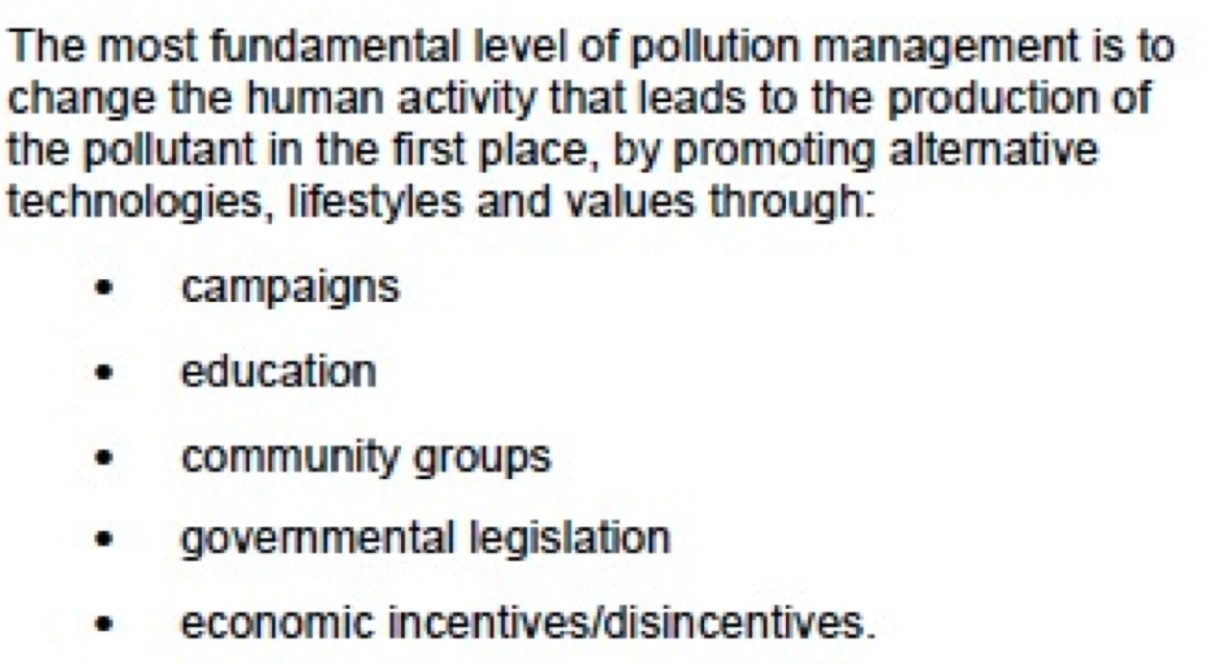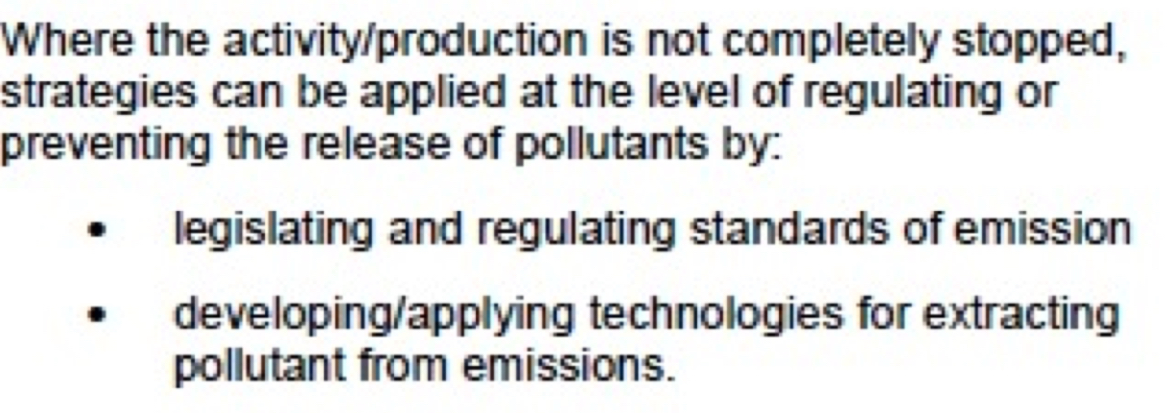ESS 1.4/ 1.5
5.0(2)
Card Sorting
1/33
Earn XP
Description and Tags
Last updated 6:26 PM on 1/2/23
Name | Mastery | Learn | Test | Matching | Spaced | Call with Kai |
|---|
No analytics yet
Send a link to your students to track their progress
34 Terms
1
New cards
Sustainability
Usage of resources that allows full natural replacement of the resources.
2
New cards
Renewable Energy
Energy collected by renewable resources that are reloaded by nature.
\
Ex: sunlight (energy from solar panels)
\
Ex: sunlight (energy from solar panels)
3
New cards
Environmental Impact Assessment
The process of decision making for the environment/ proposing a new development. They provide decision makers with information.
4
New cards
Non- Renewable Energy
Energy collected by non-renewable resources. These cannot be replaced.
\
Ex:
* coal
* nuclear energy
\
Ex:
* coal
* nuclear energy
5
New cards
Ecological Footprint
The area of land & water required to sustainably provide all resources at the rate which they’re being consumed.
\
It can be increased by;
* usage of fossil fuels
* usage of energy
\
It can be reduced by;
* recycling
* reducing usenof resources
\
It can be increased by;
* usage of fossil fuels
* usage of energy
\
It can be reduced by;
* recycling
* reducing usenof resources
6
New cards
(MEA) Millenium Ecosystem Assessment
Was a research project that measured 24 indicators of ecosystems & their services. It expired in 2015 and the world agreed on the sustainable development goals.
7
New cards
Environmental Indicators
Anything that you can define to describe and measure a component of the environment.
8
New cards
Natural Capital
Natural resources that can supply a natural income of goods & services.
9
New cards
Pollution
It is the addition of a substance or an agent to an environment through human activity which has a large effect on the organisms.
10
New cards
Primary Pollution
* directly created
* identifiable sources
\
Ex:
* sulfur dioxide
* carbon monoxide
* identifiable sources
\
Ex:
* sulfur dioxide
* carbon monoxide
11
New cards
Secondary Pollution
* created by primary pollutants
\
Ex:
* acid rain
\
Ex:
* acid rain
12
New cards
Persistent Organic Pollutants
Organic compounds that do not break down in the environment through chemical & biological processes.
13
New cards
Biodegradable Pollution
The pollution which breaks down naturally in the environment.
14
New cards
Acute Pollution
A single isolated incident such as an oil spill.
15
New cards
Chronic Pollution
Long term release of a pollutant.
16
New cards
Point Pollution
Release of pollutants from a single clearly identifiable source.
\
Ex:
* waste disposal pipe of a factory into a river
* Chernobyl
\
Ex:
* waste disposal pipe of a factory into a river
* Chernobyl
17
New cards
Non-Point Pollution
Release of pollutants from numerous, widely dispersed origins.
\
Ex:
* gasses from the exhaust system of a car
\
Ex:
* gasses from the exhaust system of a car
18
New cards
Disadvantages of DDT
* Alternative methods of pest control exist.
* Effects other wildlife.
* Significant ecological effects.
* Leads to premature birth.
* Effects other wildlife.
* Significant ecological effects.
* Leads to premature birth.
19
New cards
Advantages of DDT
* Non-toxic
* Safe is used properly.
* Alternatives not as effective.
* Safe is used properly.
* Alternatives not as effective.
20
New cards
Organic Pollutant Example
Sewage release into water system
21
New cards
Inorganic Pollutant Example
Plastic floating in the ocean
22
New cards
Light Pollutant Example
Sea front development with lights that are on all night
23
New cards
Sound Pollutant Example
Oil and gas exploration in ocean
24
New cards
Thermal Pollutant Example
Thermal power plant releasing warm water into river
25
New cards
Biological Agent Pollutant Example
E-coli contamination in water
26
New cards
Invasive Species Pollutant Example
Cane toads in Australia
27
New cards
Pollution Management: Altering Human Activity

28
New cards
Pollution Management: Controlling Release of Pollutant

29
New cards
Pollution Management: Clean-up and Restoration of Damaged Systems

30
New cards
Sustainable Development
Development meets the needs of the present without compromising the ability of future generations to meet their own needs.
31
New cards
Natural Incıme
The yield obtained from natural resources.
32
New cards
Services
Ecosystems may provide life supporting services.
33
New cards
Goods
Physical items that are renewable or non-renewable.
34
New cards
Rio Earth Summit to Agenda 21
Agenda 21 is a comprehensive plan of action to be taken globally, nationally and locally by organizations. Sustainable material cycles, ecological land use and sufficiency.